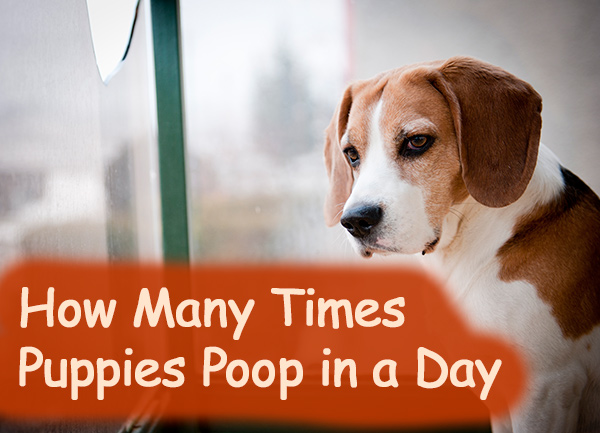New puppy owners are just as jittery as new parents, they want everything to be perfect, even the strangest thing should be considered. One thing I remember stressing about my puppy was their poop.
How many times a day should a puppy poop? Puppies normally poop 5 times a day. This pattern is normal for puppies of 8 weeks, 10 weeks, 12 weeks, 5 months, 6 months, and any age until they mature into adulthood. This can vary from puppy to puppy and largely depend on their diet, age, and activity level. A tired or hungry puppy will have a lot more bowel movements. For the most part, a young puppy will poop at least once every day, usually more frequently than that, as puppies generally poop just about every time they defecate.
If your puppy only poops once a day, the bowel is likely not emptying properly. If that is the case, your veterinarian can help you by performing a simple procedure to stimulate the bowel, called an abdominal massage. This may be necessary a few times per month, but it is a good idea to talk to your veterinarian before you try this yourself.
If your puppy only poops once per day but eats a lot of food, he might be constipated. The first step is to talk to your veterinarian about this problem. Your puppy may need a change in diet or medication that helps with this problem.
How Many Times a Day Should My Large Puppy Poop?
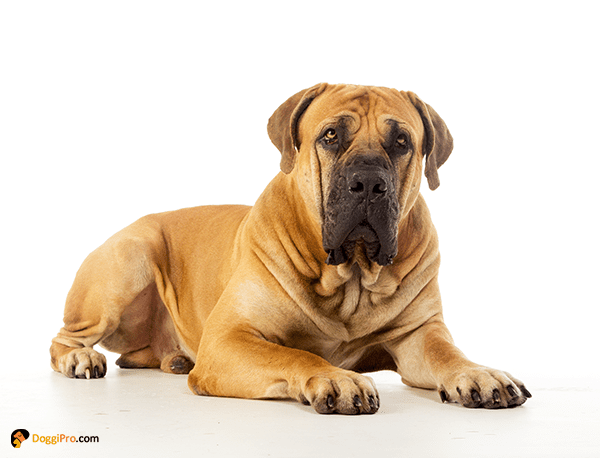
The large breed dog is expected to poop at least 2 times a day (major fiber source here), and 3-4 times a day would be considered normal. Large breeds can digest big meals, so you really don’t want your puppy to eat too much because they can poop – I could personally go for the weight watchers’ way of thinking – too many calories equals more and bigger poops! A large breed puppy gets overly active and energetic and poops more than once a day.
Is your puppy’s poop normal?
What should my puppy’s poop look like? Puppy poop should be soft and formed. Its consistency should be similar to that of peanut butter or cottage cheese. It should not be black or green in color.
If the coat of your young puppy looks dull and dry, it could mean that she is not getting enough water and maybe dehydrated. Dehydration can also cause constipation, so keep this in mind as well.
Healthy Puppy Poop Chart
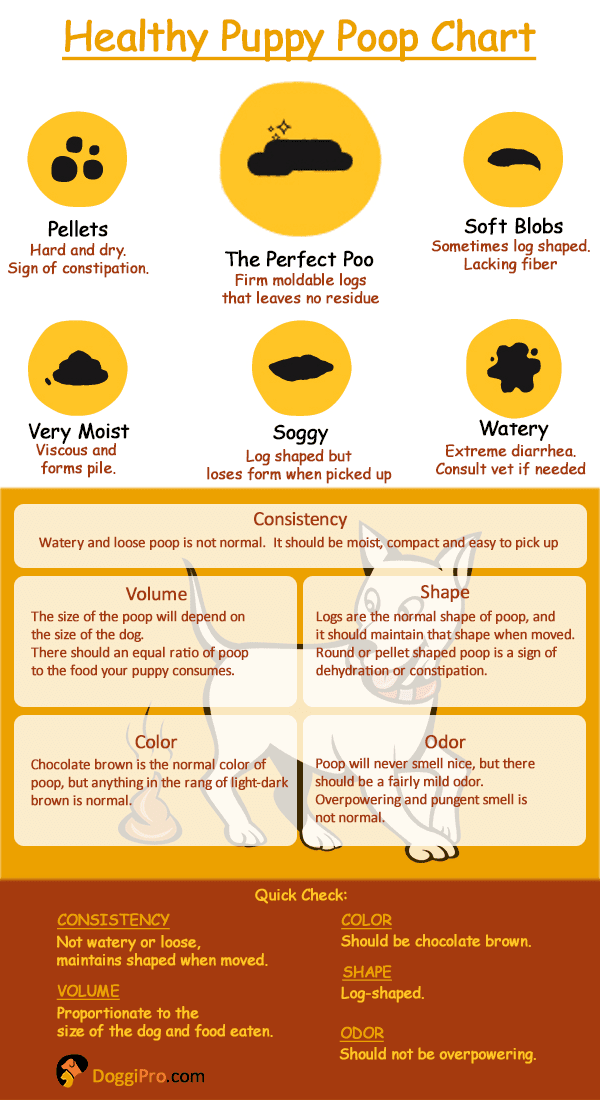
The 5 main characteristics of puppy poop to check are Consistency, Volume, Shape, Color, and Odor.
Consistency
Watery and loose poop is not normal. I should be moist, compact, and easy to pick up.
Volume
The size of the poop will depend on the size of the dog. There should be an equal ratio of poop to the food your puppy consumes.
Shape
Logs are the normal shape of dog poop, and they should maintain that shape when moved. Roud or pellet-shaped poop is a sign of dehydration or constipation.
Color
Chocolate brown is the normal color of poop, but anything in the range of light-dark brown is normal.
Odor
Poop will never smell nice, but there should be a fairly mild odor. An overpowering and pungent smell is not normal.
How can you tell when your puppy needs to poop?
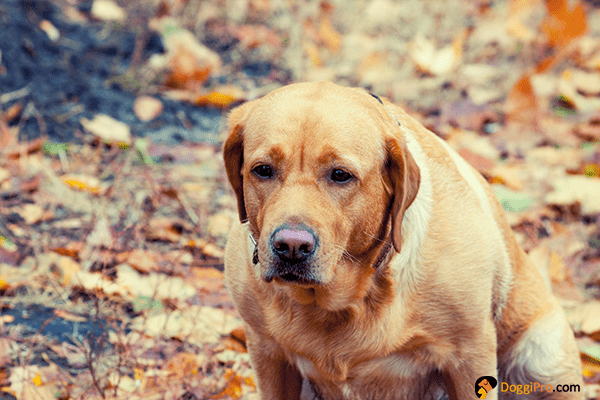
Running
Running around the house or yard with their tail tucked between their legs is a clear sign your pup needs to go potty.
If they start doing this and there is no way they have finished peeing, it’s time to take them outside! They are ready to go and need some help.
Wagging their tail
When your puppy is ready to poop and enter the ‘zone,’ they will often wag their tail slightly as they walk around the house. This is your indicator to get out that poop bag!
Squatting
A sure sign your pup is about to do their business is when they start squatting! This is the perfect time to get out the poop bag and pick it up after them.
Taking a sudden interest in their environment.
Your puppy will often sniff the ground, sniff around and start walking around in circles as if they are trying to find the perfect spot. They have taken notice of their surroundings and are ready to go!
Trying to chew the leash.
If your puppy is pulling at their leash, it’s almost certain they need to go.
Whining
A whine or two should alert you to the problem and remind you that you left the poop bag inside. If you are outside and your pup is done peeing, it’s time for a poop.
Other times when your pup needs to poop:
During playtime
Going outside for a walk is a great way to teach your new puppy how to do their business outside. They will start to recognize and look forward to the walk to relieve themselves. Make it a positive experience by rewarding them with a treat and praise. This way, they will easily recognize the pattern they need to go to!
When they are excited
Puppies are often more excited than we are when there is a chance to see other dogs or meet new friends. If your puppy starts running around and barking at the door, be sure to take them out before there is an accident! This is not only embarrassing for us but also uncomfortable for them.
After playing hard and eating a big meal
If your puppy is playing tug of war with you and running around chasing their ball, you have just given them a good workout. When they are finished panting from exhaustion, it can be easy to pass out in any part of the house. You need to keep tabs on them so that you can get them outside before they make an accident if they do fall asleep. Sudden excitement or eating too fast can also make your puppy need to relieve themselves! So after a big meal or vigorous playtime, take them out ASAP or risk waking up to something that smells like ‘stinky cheese’! Not only will this smell terrible, but it could stain your floor if left too long!
In the morning or evening, before they go to bed.
Your puppy has been sleeping all day while you were at work or school and now suddenly has tons of pent-up energy. As soon as you get home – game time! They get super excited and start playing as much as possible before going back to sleep. Be sure to take them out before bedtime because this will help your pup transition into a good sleeping schedule. They will associate going out with sleep time and make it easier for you in the morning since your coffee will already be finished brewing!
When should I take my puppy outside to poop?
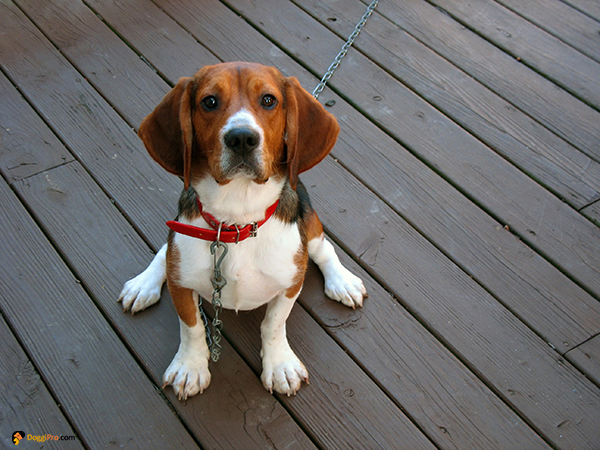
Usually, you can take your puppy outside every 3 hours. However, puppies often need to go more often because their bladders are very small, and they have not learned how to control their bladders yet.
So if you have just taken him outside and he does not poop after 15 minutes, go back inside with him and try another time again later in the day. But do not let him go longer than an hour without going outside at least once! Many people try to play with their puppy to get them to go potty, but this can lead to potty training problems later on down the road, so I do not recommend it ever! If your puppy does get an accident inside (urinating or defecating), clean up immediately with water before it has a chance to dry and set-in stains! This will remind him that he needs to go outside next time he has to go! If you see him sniffing around or squatting, then take him out right away! If you continue with these steps consistently, you should not have any potty training issues! Your puppy will learn how long he needs to hold it before he goes outside, and eventually, will go on his own when he needs to!
What happens if you don’t take your dog outside?
If you leave your puppy in the yard, they do not realize they need to go potty. The best thing to do is take them out every hour until they get older! You can train them to understand this once they are older, but they will not know what to do with themselves if you leave them unsupervised outside.
How long should my puppy poop take?
A healthy dog should only need to poop every 2-3 hours. If your puppy goes less than that, it could signify a health issue like constipation. If you are concerned about this, you should seek veterinary care from their local dog-friendly veterinarian. They can make sure there isn’t an underlying issue! They can go more than that occasionally, but you want it to be a regular thing so you can plan for it.
What to do if your puppy’s poop changes.
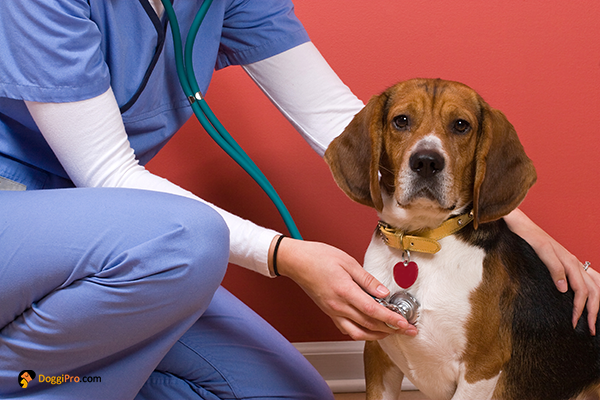
1) Check stool. See if the stool changes depending on what you feed your puppy.
2) Check with your vet. If there is blood or mucus in the stool, especially if your puppy is vomiting, please bring them in to see your vet.
3) Remember that if your puppy is fed 75% high-quality meat, there is no need to provide stool softeners. Poop will always firm up over time.
4) If you are feeding a commercial dog food, try switching away from it for a couple days. It is usually pretty easy to see the difference.
If the above tips don’t work, your puppy may not be digesting food properly.
5) Feed some eggs and spinach. Add 2 raw eggs and 2 cups of raw spinach to your dog’s food. This step seems to help firm up poop in most cases.
In this case, you should feed digestive enzymes and probiotics (you can buy them together in a product such as Mercola Probiotic and Enzyme). We often see dogs with digestive problems with poor intestinal health. This type of dog requires proper probiotics and/or digestive enzymes if fed dry food or a high level of carbohydrates.
My puppy has diarrhea.
What if my dog has diarrhea? If your dog has diarrhea, these tips apply, but pay special attention to their excrement. As a general rule of thumb, diarrhea can occur overnight, so if you find a pile of poo in the morning and not immediately after, you may be dealing with loose feces.
If your puppy has the runs (diarrhea), it is obvious that something is causing it. First, try rotating the foods for a day and see if it makes a difference. When you change foods, don’t mix and match in terms of brands or quality–feed the same brand for one meal, then switch brands for another meal.
Try this for several days before trying a new food brand. Talk with your vet about possible food allergies if your dog has been on one food and suddenly has diarrhea with no reason or change, and again start with rotating foods as above first.
In addition, probiotic supplements are recommended if the dog eats dry food or has eaten dry food recently (a high-carbohydrate diet).
Poop consistency changes with age and diet. Many times, you’ll find that poops get lumpy or sticky, or develop holes in it or become looser or firmer. That’s because each puppy develops its’ own digestive system and eating habits as it grows. As the puppy grows, its diet changes due to maturation and development. So any changes in the consistency of your dog’s poop is a normal sign of maturity, as shown in our series on what puppies eat.
When puppies are born, poop is loose and looks granular, then changes to separate, individual pellets centipede-like within 36 hours after birth. This is called meconium. Meconium softens within several days, and parents will notice spit-up or vomiting dotting the floor around the litter box. This is normal puppy poop development.
If your puppy passes runny poop, especially at each feeding or after every meal, that’s an indication of diarrhea commonly caused by:
1) Onions, garlic, or chives in food. Patty with the pungent taste of onions may be responsible for affected stools; sometimes, they also bring out worms.
2) Worms, including tapeworms, can cause diarrhea, too; sometimes, roundworms can reproduce large eggs which migrate down into the intestines
3) Kitty litter sometimes is accidentally fed to puppies but can accumulate in an immune-sensitive dog’s small intestines causing diarrhea
4) Use of poor quality dog food like from a grocery store can affect stools; some types of salmon protein found in cheesecakes are high-allergy ingredients that may cause painful digestion if eaten too regularly
What to do if your puppy is constipated.
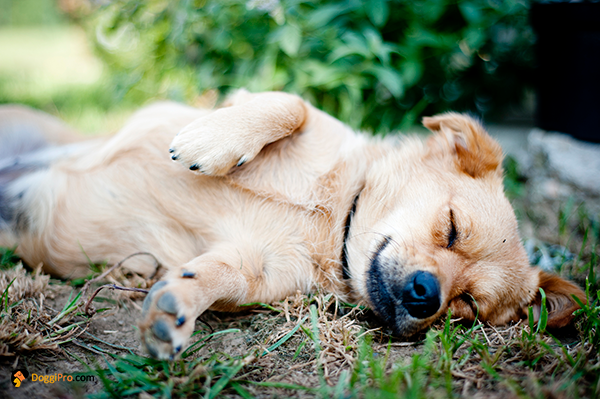
Two main reasons could cause constipation in puppies. One of them is because they simply hold in waste too long, and when they do it, they feel like a great burden was taken off their system that they can now move freely without touching the overfill of waste inside them.
The second reason could be because they have consumed too much dairy products, like milk or cheese, which makes them feel just like we think, and we often have to use laxatives. Another reason could be that their diet was not complete enough to digest properly and replace the nutrients that their body needs to grow properly.
If a particular fiber is causing constipation (beans, potatoes), omit those foods from the diet during any constipation crisis; they can be re-introduced later over time when you are making gradual dietary changes (adding new baby food recipes gradually every 2 weeks).
If apples, bananas, or apple juice causes constipation, stop giving that particular fruit and try out any watery fruits (peaches or pears) instead until things get moving again. Be sure to always add something to the diet during constipation crises (such as the above suggestions) versus switching immediately over to a very high vegetable diet; otherwise, it can be very hard on your puppy’s immature digestive system in terms of nutrients etc without an adequate source of balanced protein from meat sources (liver, egg etc whilst increasing bland fruits).
Make your puppy understand that there is something better outside than just one color of the water bowl. Something you can do is to tempt with food. Feed your puppy with vegetables and fruits mixed with their daily kibble to stimulate the urge to move the bowels. Instead of feeding them all at once, split their meals into four portions to have it more slowly in their bowel movements. This change in the diet will help them even more, to digest properly.
You can also give them very light foods like pureed carrots and pureed broccoli or other pureed vegetables. This will help them to pass waste easier. You can also give them probiotics or healthy bacteria to help them balance out their gut flora to absorb nutrients easier and have a softer stool and increased regularity.
Conclusion
As unending and torrential your experience with your puppy’s poop maybe. I can assure you it will end soon.
But still I urge you to enjoy this part of your journey with your new lifelong companion.
- Why Shih Tzu Are The Worst Dog: An In Depth Analysis - February 7, 2024
- Why Schnauzers Are The Worst Dogs (or Are They?) - February 7, 2024
- Can dogs eat gushers? The Answer Might Suprise You - January 26, 2024
